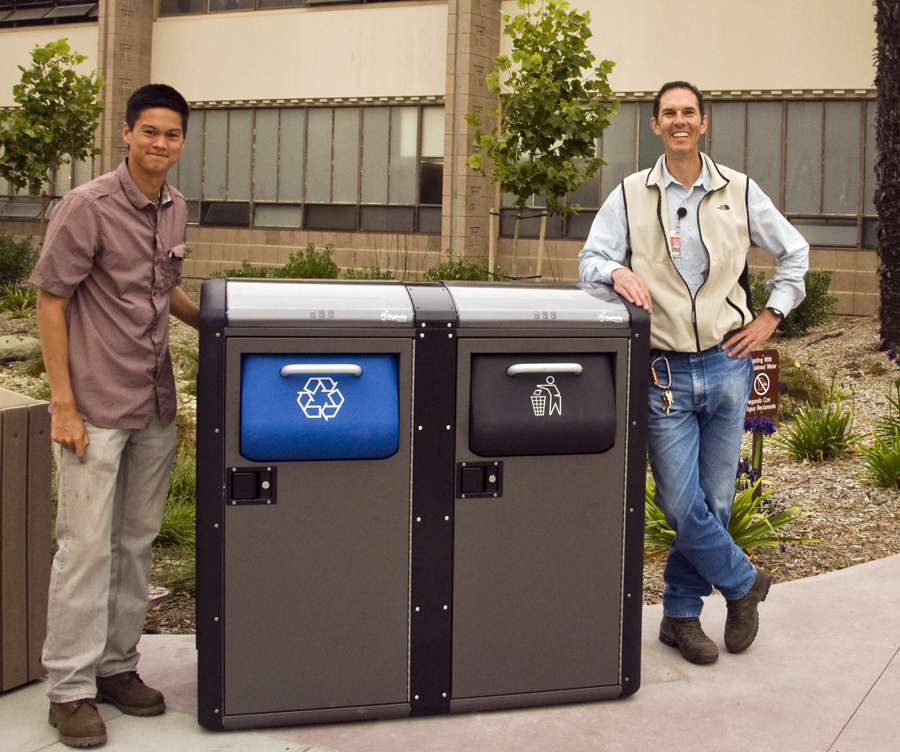
UC Santa Barbara Ranks Among Top U.S. Universities in STARS Sustainability Ratings
For decades, UC Santa Barbara has taken pride in its commitment to sustainability. Now the campus has the numbers to support its claim as one the greenest campuses in the country.
UCSB has received a Gold rating in the Sustainability Tracking, Assessment & Rating System (STARS) program sponsored by the Association for the Advancement of Sustainability in Higher Education (AASHE). On its website, STARS is described as a transparent, self-reporting framework for colleges and universities in the U.S. and Canada to measure their sustainability performance.
This is the first time UCSB has been rated in the STARS system, which ranks schools on a scale of Bronze, Silver, Gold, and Platinum. There are only 35 universities in the U.S. and Canada with a Gold rating. No schools have attained the Platinum, or highest, rating. Fifty schools are ranked Bronze, while 91 have attained a ranking of Silver. Another category, Reporter, is for schools that submit data but choose not to be rated.
The only other campuses from the University of California system to be rated are UC San Diego (Gold) and UCLA (Silver).
"The Gold ranking not only highlights the success of our sustainability efforts on campus, but also is a transparent resource to share with all higher education institutions the specific elements of our program," said Ron Cortez, associate vice chancellor of administrative services and co-chair of the Chancellor's Sustainability Committee. "We hope that our model can assist others in pursuing sustainability infusion into operations, administration, research, and teaching."
UCSB's 280-page report details every aspect of sustainability efforts on campus, according to Mo Lovegreen, UCSB's sustainability manager and leader of the campus's STARS team. "It's a rating scale of how well you're doing in various categories, such as academics and research, curriculum, community outreach, and operations and maintenance," Lovegreen said. "Our success springs from all of the great work the students did for us."
Much of the initial work for the STARS report was carried out by Assistant Professor Simone Pulver's Environmental Studies students, who conducted an analysis of UCSB's sustainability programs as a class project. "They did a really great job," said Lovegreen. "We couldn't have done this without their hard work."
UCSB's STARS score of 66.27 included a 60.53 score in education and research; 56.79 in operations; and 69.48 in planning, administration & engagement. A four-point bonus for innovation credits –– for the campus's Zero Net Energy Initiative, the Grounds to Grounds composting program, the LabRATS sustainable laboratory team, and the Chancellor's Sustainability Internship program –– helped lift UCSB to a Gold rating.
UCSB scored high marks in categories across the board, including dining services, for programs such as composting, vegan menus, and trayless dining; education and research, for sustainability research initiatives, graduate and undergraduate programs, and the student sustainability outreach program; and planning, administration & engagement, for, among other things, coordination and planning.
"We did amazingly well in our sustainability organization," Lovegreen said. "The fact that we have specific sustainability positions funded on campus, and have the committee structure (including the Chancellor's Sustainability Committee), those things are all very positive. We got a lot of points there."
The STARS process also exposed some of the campus's weaknesses, according to Lovegreen. "Our weakest point is investments," she said. "UC overall did not rank well in that category. It's going to be a continuing challenge, in part because of the way we handle investments as a system."
Overall, the roughly 709 hours devoted to the STARS assessment were well worth it, and will allow UCSB to update its profile within the AASHE system on an ongoing basis. "You can really get a sense of an institution's greenness based on what you need to add in the future," said Lovegreen.
Other members of the STARS team were Katie Maynard and Bill Norrington, from geography; graduate student Matthew O'Carroll; and undergraduate students Felicia Bill and Ryan Kelley.
† Top image: Showing off UCSB's new Big Belly recycling bins are Matt O'Carroll, the campus's refuse and recycling intern, and Jon Cook, associate director of landscape, environmental & customer services.
Credit: Mo Lovegreen
†† Bottom image: Bonnie Crouse, assistant director of residential dining services, poses in the De La Guerra Commons, one of UCSB's dining facilities, all of which feature many sustainable practices, including trayless dining, organic foods, and vegan menus.
Related Links



